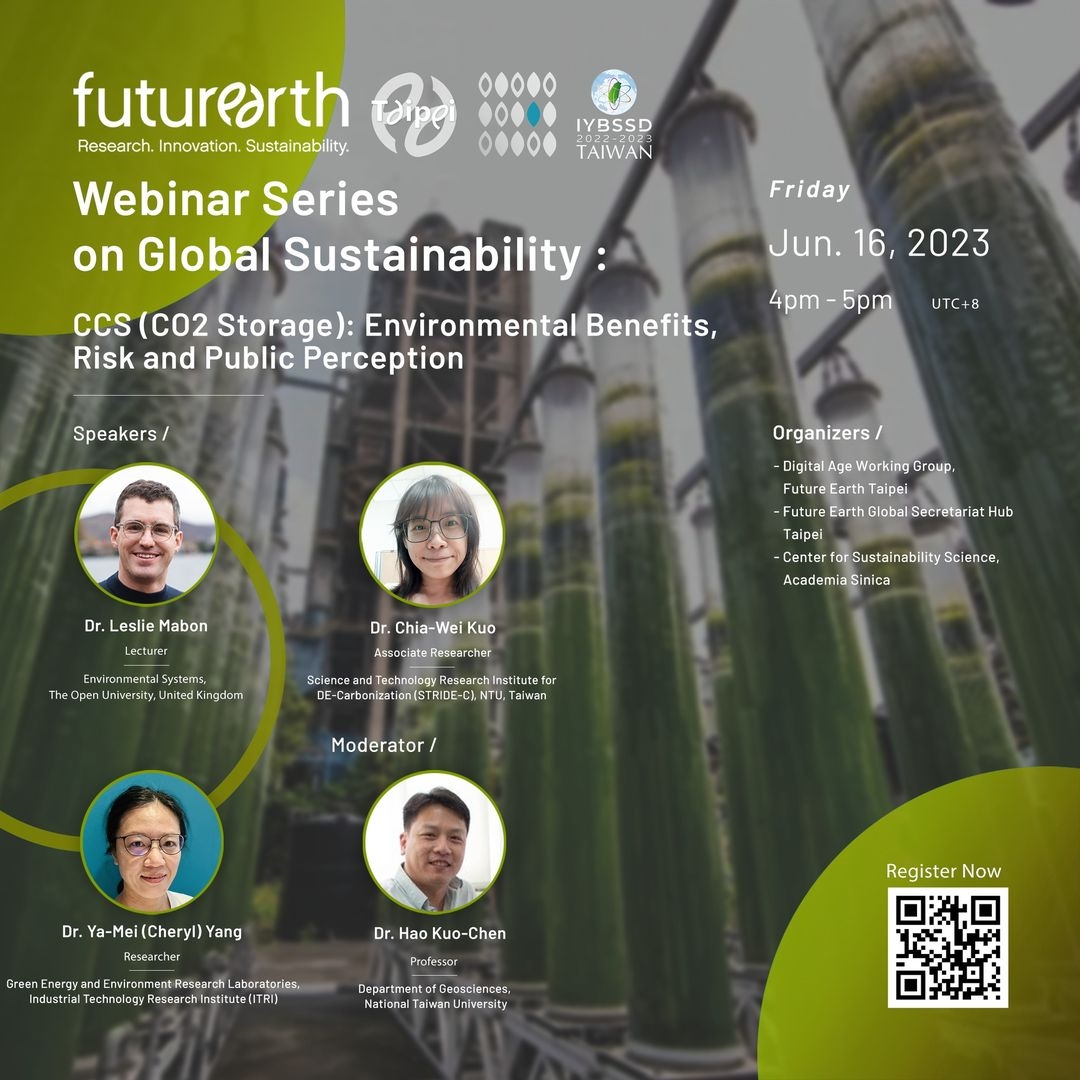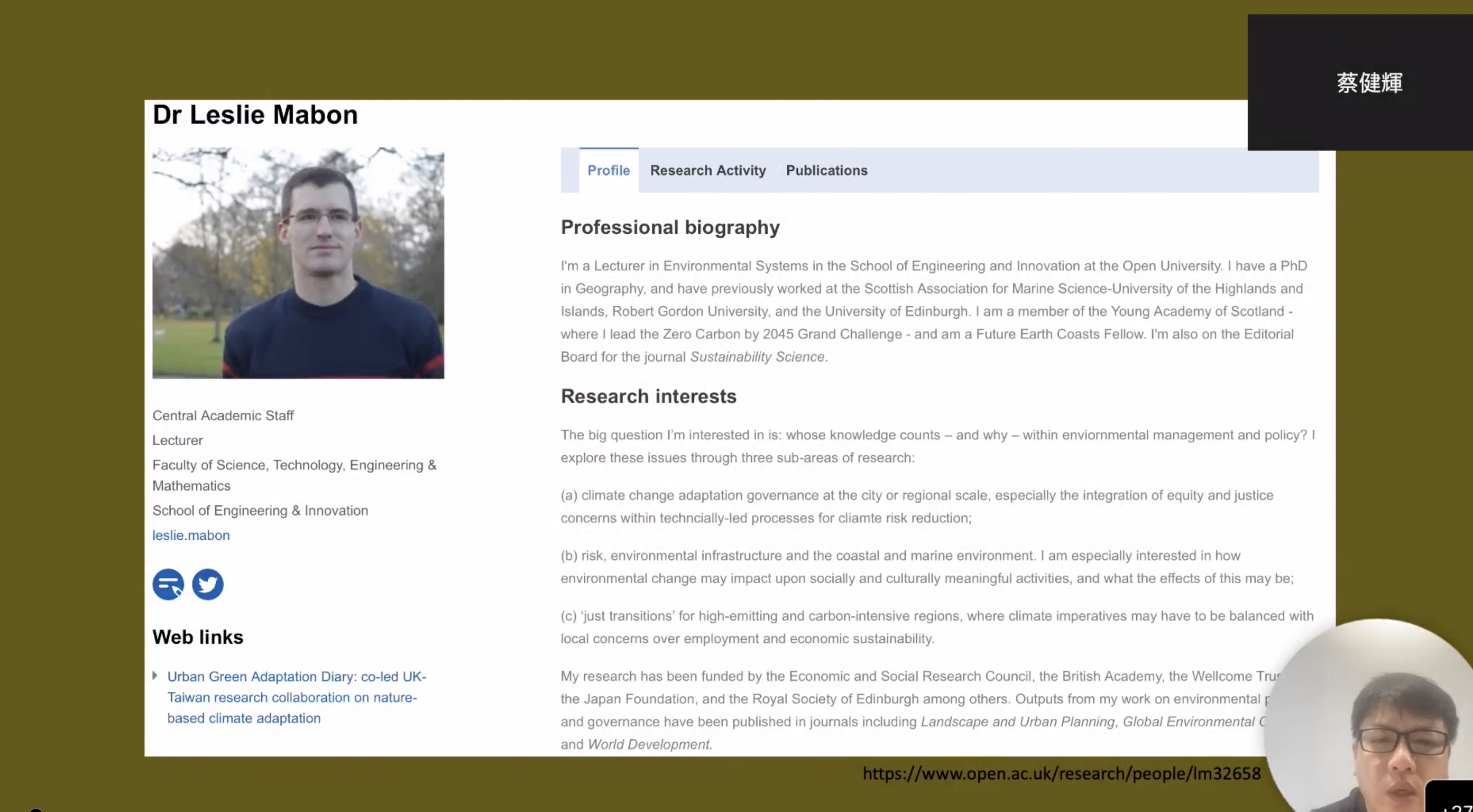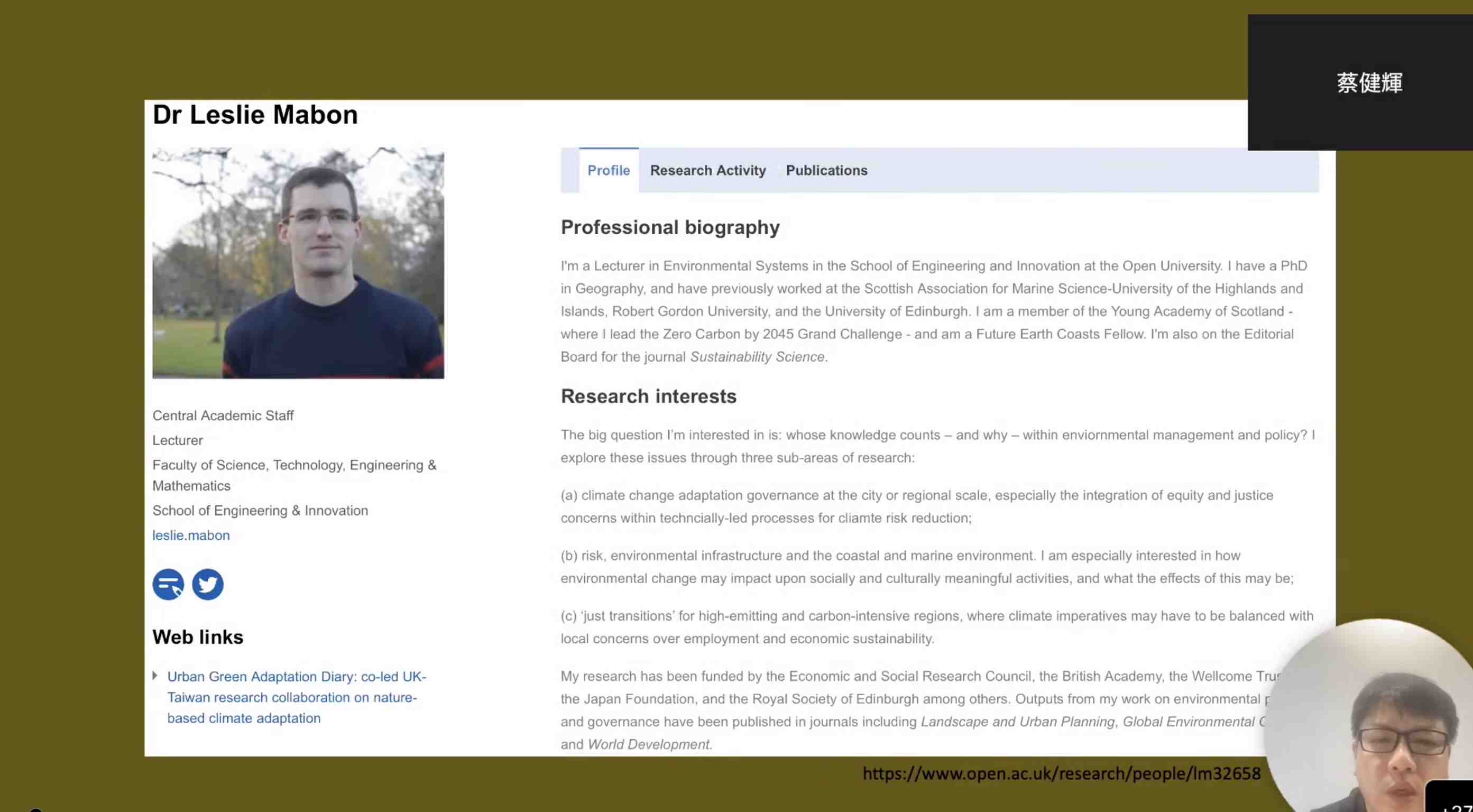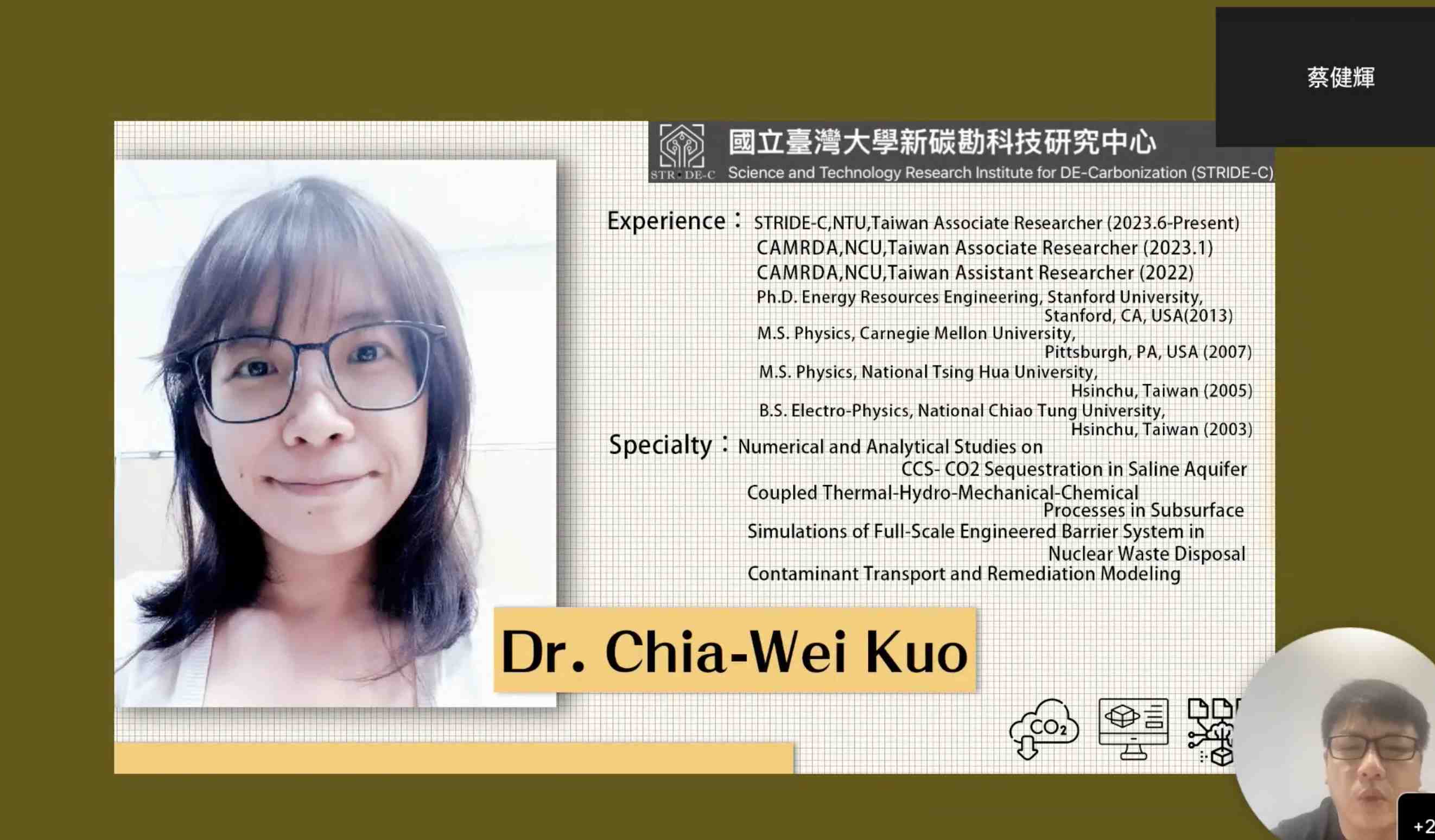CCS (CO2 Storage): Environmental Benefits, Risk and Public Perception
Taiwan has favorable conditions for geological carbon dioxide storage, and if properly utilized, it can meet our carbon reduction needs until 2100. However, there are still many challenges in promoting and implementing CCS in our country. The Future Earth Taipei Digital Generation Working Group has invited experts and scholars to discuss this issue from the perspectives of environmental benefits, risks, and public awareness. You are welcome to join our online exchange and discussion at the scheduled time!Date | June 16, 2023Time | 16:00 - 17:00 pm (UTC+8)Venue | Cisco Webex (meeting link will be sent after registration)Language | English
Activity Goals aligned with SDGs Projects

Goal
Science Cultivation、Public Engagement、International Connections
Type of event
Seminar/Forum/Lecture
Organizer
- Digital Age Working Group
Future Earth Taipei - Future Earth Taipei Hub - IYBSSDXTAIWAN - 中央研究院 永續科學中心 Center for Sustainability Science
Academia Sinica
Event Audience
Public participants
researchers
Contact
Dr. Dolly Chung 鐘鈺鈞 博士 (dolly0105@gate.sinica.edu.tw)
Telephone Number
27872536
dolly0105@gate.sinica.edu.tw
Result
Carbon Capture and Storage (CCS): Dr. Leslie Mabon emphasizes the importance of CCS as a means to slow climate change in the industrial sector. CCS includes carbon dioxide emissions from various sources (such as power plants and industrial facilities), and stores them in underground geology to prevent them from being released into the atmosphere.Social acceptance and communication: Dr. Leslie Mabon emphasizes the importance of social acceptance and effective communication in the implementation of CCS projects. They discussed different concerns and views of interests (including local communities, enterprises, politicians, and environmental protection organizations). Establish trust, respond to risks, and provide accurate information through various channels (including social media) to be identified as key elements of successful implementation of the CCS project.The motivation for carbon storage: Dr. Chia-WEI KUO proposed the need to respond to climate change caused by rising carbon dioxide emissions and the needs of global warming potential consequences.CO2 storage process: The steps involved in carbon capture and storage include capture, compression, transportation and injection into the rock layer. Emphasizing the importance of physical power and heterogeneity of rock layer for carbon dioxide behavior.The importance of CCS technology: Dr. Ya-MEI Yang emphasizes the global importance of CCS technology to reduce CO2 emissions and achieve zero carbon path. The IECC AR No. 6 Report and Taiwan's quantitative data support the use of CCUS (carbon capture, utilization and storage) as a strategy of reducing CO2 emissions by various departments.
Number of Participants29人
Featured events
Contact Us
- Tel: 02-7749-6818
- Email: iybssdtw@gmail.com
Adviser

自然科學及永續研究發展處
Organizer
國立臺灣師範大學科學教育研究所、自然科學及永續研究推展中心、國立成功大學材料科學及工程學系、台灣物理學會、中國化學會
Co-organizer
中央研究院永續科學中心、中原大學物理學系、中華民國數學會、行政院原子能委員會、財團法人國家實驗研究院國家高速網路與計算中心、財團法人國家衛生研究院、高雄市政府教育局、國立中央大學科學教育中心、國立中正大學科學教育中心、國立成功大學科學教育中心、國立自然科學博物館、國立東華大學科學教育中心、國立科學工藝博物館、國立海洋生物博物館、國立海洋科技博物館、國立高雄大學科學教育中心、國立高雄師範大學、國立清華大學跨領域科學教育中心、國立彰化師範大學、國立臺灣大學科學教育發展中心、國立臺灣科學教育館、國家衛生研究院、淡江大學科學教育中心、逢甲大學綠能科技暨生技產業發展研究中心、臺北市政府教育局、臺灣永續棧、臺灣海洋聯盟、臺灣港務股份有限公司








